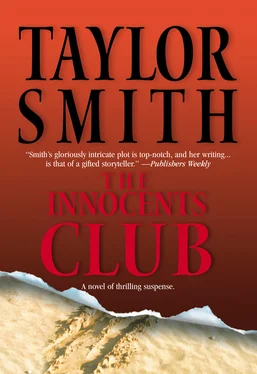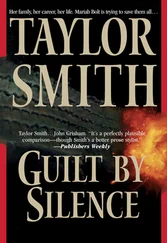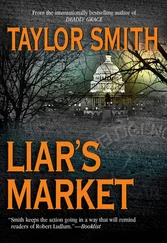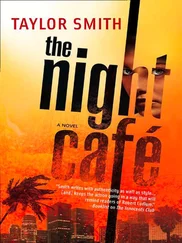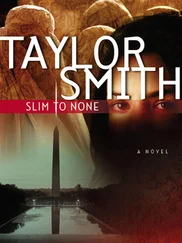“I want my knife back first.”
The courier handed it through the window. Tucker took it with his handkerchief, transferring both to his left hand. Then, as the Russian started to pass in the envelope, Tucker’s right hand clamped around his wrist.
“What are you doing?” the courier protested.
Tucker jabbed the other man’s thumb with the tip of the knife. Not much—a pinprick, really, just enough to draw blood. Hardly enough to justify the stream of Russian obscenities that exploded from the other man’s mouth. Yanking the man’s arm downward, Tucker pressed the bloody thumb firmly against the flap, making a seal across the re-closed edges. Then, he released him.
The Russian jammed his thumb into his mouth. “What the hell you are doing that for?” he cried, grammar failing him in his fury.
Tucker closed the knife carefully, wrapped it in the handkerchief and dropped them both into the door pocket beside him. Only then did he take the envelope. “Sorry,” he said. “Personal insurance. Now I have your fingerprints on my knife and your DNA on the envelope.”
“If my people find out—”
“As long as you don’t try playing games with me, your people will never know. You have my word on that. Now, what else? Do I need to get in touch with you again?”
“No, I have done my part. The next step is up to you.”
“Meaning…?”
“Read the letter. You will know what you are to do. Good evening, Mr. Tucker.”
With that, the Russian turned away in a huff, still nursing his injured thumb, climbed back in his car, jumped a red light and sped away through the empty intersection. Tucker took note of the red diplomatic plates as the car disappeared into the night. Curiouser and curiouser.
His eyes dropped to the blank brown envelope. He turned it around in his hand, then laid it on the seat beside him, keeping the blood-smeared flap on top, away from the upholstery.
As the light at the intersection changed from red to green once more, Tucker punched in a number on his console-mounted cell phone, picked it up and made a U-turn, heading back toward Langley.
A fingerprint on the knife allowed them to identify the courier from visa files. His name was Gennady Yefimov, a recently arrived third secretary at the Russian embassy in Washington—a junior flunky, albeit one already suspected of being part of the embassy’s intelligence Rezidentura. His late-night rendezvous with Tucker pretty much confirmed it.
The source of the message was another kettle of fish altogether. The note was in Russian, but the signature was a single English word: “Navigator.” It was a taunt, this use of the secret code name given to the Russian spymaster by his own adversaries in tribute to the man’s ability to navigate Moscow’s treacherous political waters. Even after the fall of communism, the Navigator had remained in place, thriving, by all accounts, when so many others had foundered and sunk.
That he knew and used his own Western code name was a galling reminder of the mole the Navigator had run for years inside Langley, a disgruntled petty functionary in the counterintelligence division. The mole had finally been caught, but not before his betrayals had cost the lives of dozens of Company assets in Russia.
Tucker had never seen the Navigator’s face, except in one grainy, long-range surveillance photograph, nor had he ever heard the man’s voice. Just the same, he knew his real name as well as he knew his own. For as long as Tucker had been in the business, Georgi Deriabin, aka the Navigator, had been the dream target of the entire Western intelligence alliance. As head of the KGB—later FSB—First Chief Directorate, he’d held overall responsibility, both before and after the Soviet breakup, for every aspect of Moscow’s intelligence activities abroad. Compared to other sources of information on Russian agents, operations and long-term strategies, Deriabin was the frigging motherlode.
Or would have been, until recently. He’d be in his late seventies now, and rumors of ill health had begun to surface. Recently, the CIA’s Moscow Station had floated the possibility that the Navigator had finally been shuffled out. Like J. Edgar Hoover in his day, however, the Navigator was said to possess incriminating files on everyone who might be a threat to him. When rumors began to spread of his eclipse at long last, there were those in Moscow Station who suspected he’d been arrested, possibly even executed. But if the Navigator really was the source of the note delivered to Tucker by the nervous courier, it had obviously been a mistake to write the man off too early.
The note said Deriabin wanted to meet with Tucker in Moscow—nobody but Frank Tucker—and it said he would make the meeting well worth the trouble. And so, after a small committee had vetted the plan and decided there was little to lose—except, Tucker knew they were calculating, one jaded officer whose best years seemed behind him—he’d flown to Moscow. If the operation had blown up in his face, they’d have simply written him off, issued some plausible cover story and saved the price of his pension.
But Tucker had come back, alive, well and carrying a crate of files whose contents remained to be determined. Not to mention the reason why the Navigator had decided to hand them over in the first place.
Mariah had her hotel-room key card in one hand and the other on the door handle, ready to leave. She was wearing her serviceable, goes-anywhere-but-a-gala-opening black Donna Karan suit. Her plan was to run over to the Arlen Hunter Museum, get the lay of the land and meet with the rest of the security contingent for the Romanov opening, chase back, change into the Chinese-mandarin silk number, then return in time for the 6:00 p.m. ribbon-cutting and reception.
But she hesitated at the door, her conversation with Chap Korman spinning through her mind. The bizarre allegation that her father had been murdered was patent, provable nonsense. But what about the claim that the manuscript she’d found had been stolen?
From whom? And why would Ben steal someone else’s work? Writer’s block? Not likely. In the nine short years before his death at the age of twenty-eight, her father had produced five novels, dozens of short stories and countless poems, not to mention several volumes of personal journals. You couldn’t have shut the man up if you’d tried.
So why was this Professor Urquhart claiming the manuscript she’d found in the storage locker, the one Ben had titled Man in the Middle, was stolen? And, more to the point, Mariah thought, why did she know that it couldn’t be?
Something niggled at the back of her brain, telling her the manuscript had to be Ben’s work. She just couldn’t think what it was. The harder she tried to zero in on it, the more elusive it became, like trying to pick up mercury.
This was ridiculous. She had no time for this nonsense. God knew she had more pressing problems to think about. A teenage daughter on the verge of rebellion. This awkward role she’d been cast in, playing temptress to lure a possible double agent. The prospect of meeting her father’s former lover.
Just the same, Urquhart’s claims would drive her crazy until she knew the basis for them.
She did a quick mental calculation, cutting her afternoon turnaround times even tighter. Spinning on her heel, she rushed back into the room, tossed her purse and key card on the bed, then rummaged in drawers and closets until she found a Los Angeles telephone book. After a quick call to Courier Express, she pulled out her personal address book, picked up the phone and dialed out again.
It took three tries before she located someone at Langley who could tell her where Frank Tucker was hanging his hat these days. Every time she looked, he seemed to have retreated farther and farther away from the mainstream of agency operations. She was relieved to finally hear his gruff voice pick up.
Читать дальше
